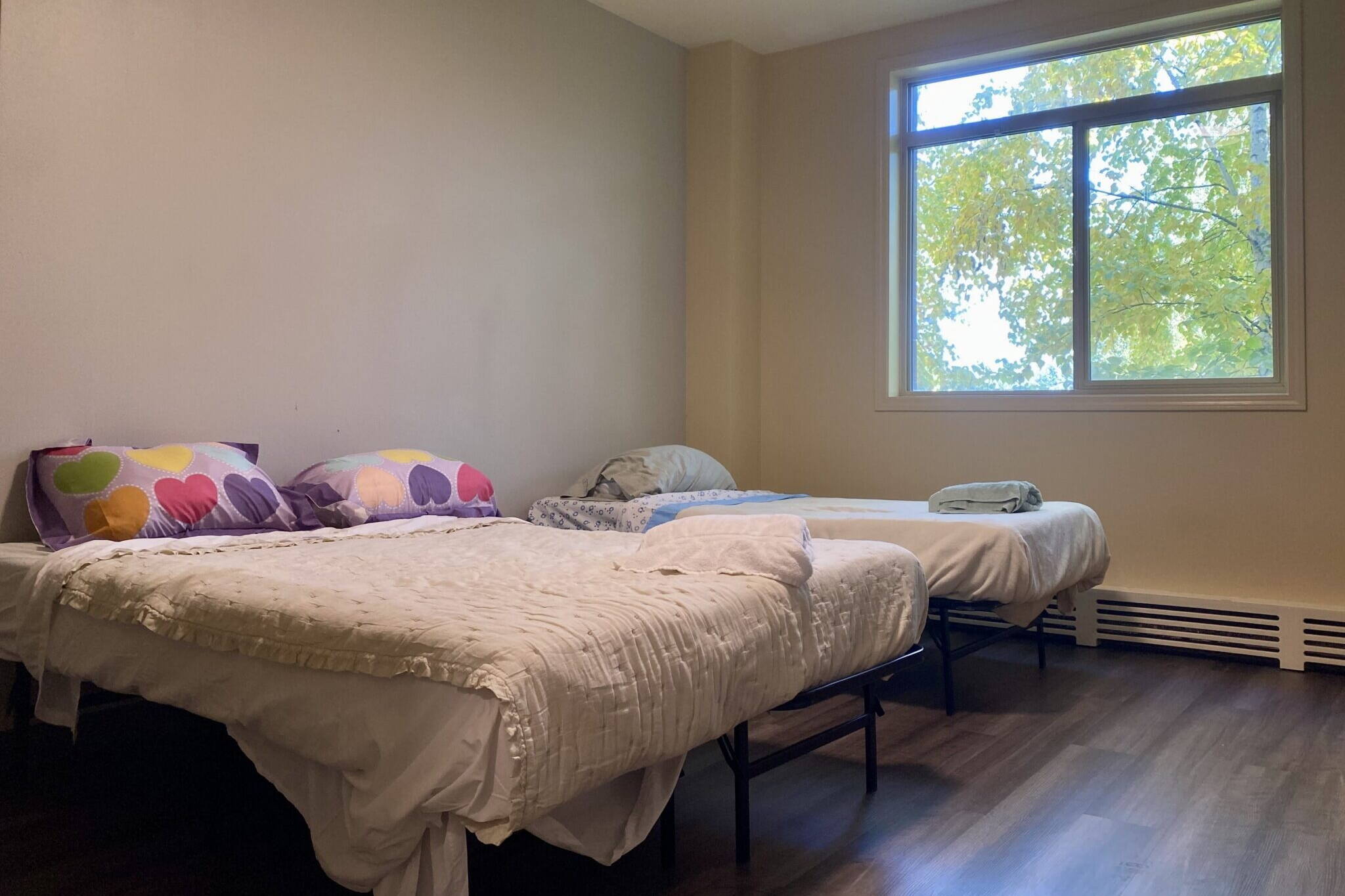As one-time funding expires, Gov. Mike Dunleavy’s proposed budget contains a nearly $4 million funding gap for services for victims of domestic violence and sexual assault.
That’s because a major source of federal funding for Alaska’s domestic violence response has plummeted in the past five years. Over time, there have been fewer prosecutions for federal financial crimes. That in turn has led to a decline in fines paid by those prosecuted, which is the primary source of funding for services under the federal Victims of Crime Act.
That multimillion dollar reduction, paired with the end of pandemic relief money and high rates of inflation, has domestic violence advocates scrambling to adequately fund the groups that keep one of the state’s most vulnerable populations safe.
Alaska’s Council on Domestic Violence and Sexual Assault, the group that manages state and federal funding for domestic violence programs and distributes them to communities, has plugged the hole with pandemic relief money and one-time funding from the state in the past.
Brenda Stanfill, director of the nonprofit Alaska Network on Domestic Violence and Sexual Assault, said the gap is roughly 20% of the state grant money that shelters run on in Alaska. She said there’s a potential that shelters or victims services programs would be shut down.
“Programs, they just can’t absorb it. I mean, they’ve been trying to absorb the flat funding, and they’re struggling,” she said.
In a House Finance subcommittee meeting on Tuesday, Rep. Rebecca Himschoot, I-Sitka, introduced amendments to restore one-time funding to victim’s services and the state’s Council on Domestic Violence and Sexual Assault.
“This amendment would restore the level of funding they had last year, which we all recognize as a cut,” she said, referring to the effect of high inflation rates. “But at least it takes them back to the amount that they had last year and will prevent the closure of shelters, that will prevent the reduction of programs and so on.”
Rep. Kevin McCabe, R-Big Lake, wanted to know which other budget item would be sacrificed to make room for the funding increase, which would come from the state’s general fund. “I do not necessarily want to use hope as a fiscal strategy,” McCabe said.
Rep. Julie Coulombe, R-Anchorage, has her own bill that would ensure state money goes to victims of domestic violence and sexual assault, but did not support the amendment.
Himschoot’s amendment failed 3 to 5, with Reps. CJ McCormick, D-Bethel, and Donna Mears, D-Anchorage, supporting it. Later, Himschoot said it was shameful the amendment didn’t make it through committee, but that she is hopeful the money is restored otherwise in the budget process.
“I recognize the limitations on the budget right now, but I don’t think in the state with the highest rates of domestic violence and sexual assault that is the thing to cut,” she said. “The place to balance our budget is not on the domestic violence shelters.”
The office of Sen. Lisa Murkowski, R-Alaska, said states have been using spending directed by members of Congress for specific purposes to try and soften the blow of decreasing funds from the Victims of Crime Act. The office has explored other funding routes, but said it is going to be a challenge.
Stanfill said Alaska cannot simply wait for federal dollars that might not be coming. “This is really asking the state to step up and fund the services that they want, where we’re not reliant on federal dollars in order to make sure that everyone has access to the services they need,” she said.
The Alaska House Finance Committee will look at the Department of Public Safety budget next. Rep. Sara Hannan, D-Juneau, said she would propose an amendment in that committee that would fund the programs for victims of domestic violence and sexual assault.

